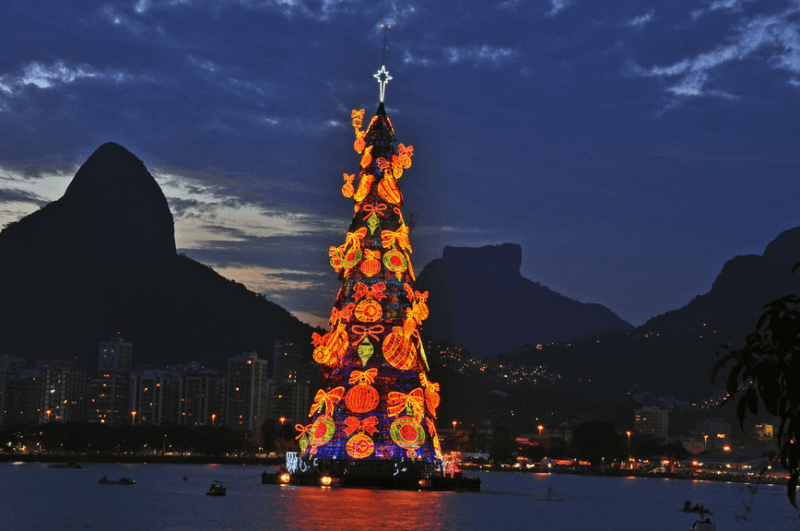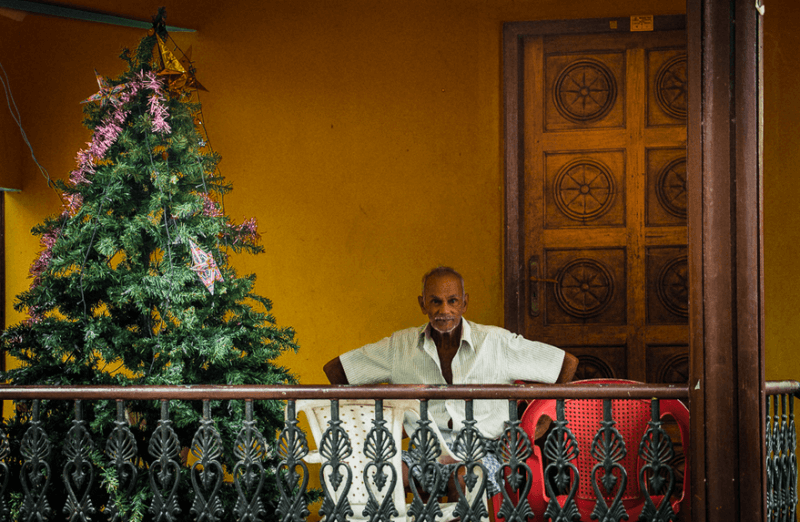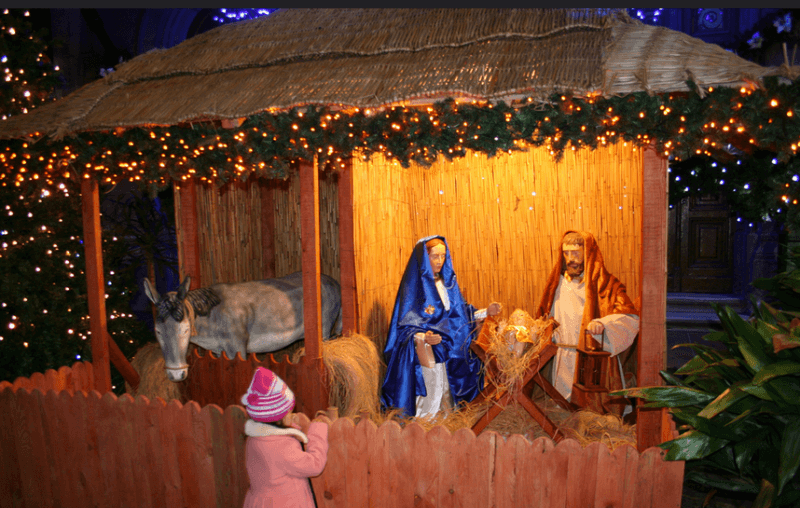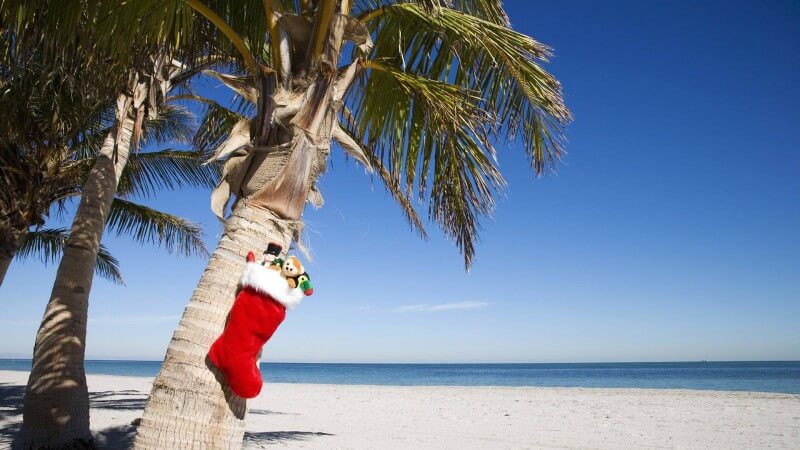How Christmas is celebrated in Brazil
Rating: 7,6/10 (1954 votes) 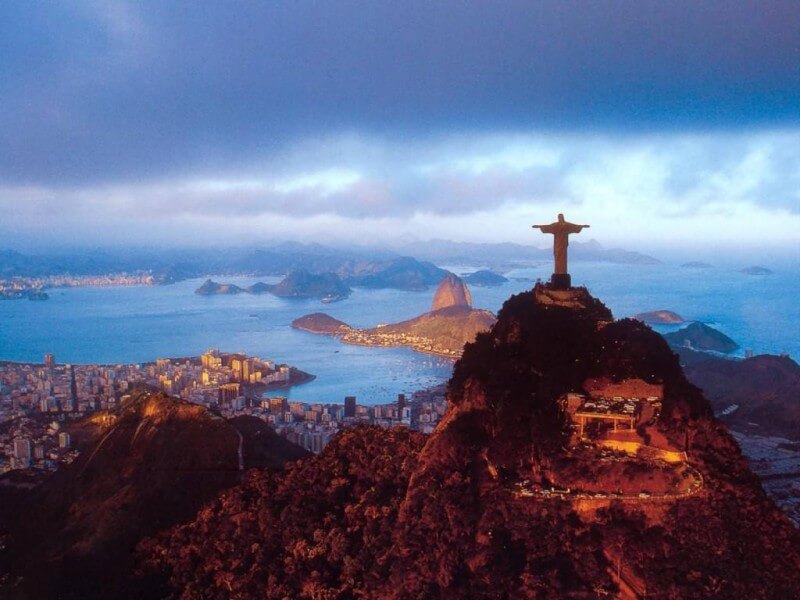 For many Russians, Brazil is a country of hot beaches, noisy carnivals and long-running soap operas. But few people know how religious this country is, and how much its inhabitants respect all the holidays associated with Christianity and other beliefs. Christmas takes a special place among other Brazilian holidays, since the day of the birth of the Savior Jesus for everyone resident of a Latin American country is not just another celebration. For the holiday. As with many things in their lives, temperamental Brazilians have a very unusual approach.  Christ the Redeemer statue Christmas in Brazil takes place at + 35 ° C - here it is the height of summer in the Southern Hemisphere. Residents who do not have the opportunity to feel all the charm of the"snow" pleasure, decorate the Christmas tree with cotton wool flakes. Today, artificial snow has appeared on the market, and Brazilians have learned to use it instead of cotton wool. Most of the Brazilian population is very devout and tries to attend festive church services. The temples here celebrate the traditional Christmas Mass, called the Mass of the Rooster, in honor of the bird announcing the arrival of Christmas morning. Important: Celebration of Christmas in different regions can vary significantly. For example, a whole series of Christmas events takes place in Gramado - the appearance of the Santa Claus Village and the Tree of Desire in the city park, Bear's chalet and toy factories. And also many festive concerts, presentation and fireworks are held. But in Rio de Janeiro on Christmas, an unusual floating tree appears, which is set in the lagoon. But the Christmas miracle begins in Brazil, traditionally for all Catholic countries - on Christmas Eve. December 24Many Brazilians have December 24 as a day off, although, even if it has work, all the inhabitants of the country have long been ready for the holiday - to buy gifts and food for a festive table, they start here several months in advance. As for the decoration of houses, here the Brazilians are trying in many ways to surpass European Catholics, if not in scale, then at least in originality. In addition to the aforementioned artificial snow, garlands, street lights, and other illumination are actively used. By the way, a Christmas tree in Brazil is not a cheap pleasure, so it is often replaced with more affordable palm trees. Christmas Eve is held in Brazil in several stages. First, all relatives must gather at their parents' house, or better, grandparents, to pay tribute to those who bear the title of the oldest family member. Here, gifts are exchanged - they can be given right on the same day, the Brazilians do not adhere to strict traditions, although conservative families must endure until the next morning. After the relatives talked, the preparation of the main meal of the year begins - Christmas Dinner. It consists of several obligatory dishes, which are very different from those dishes that are usually served in neighboring countries. The main decoration of the table, of course, becomes turkey, or any other large bird ... In this, the Brazilians remain conservative, but the filling of the baked dish can be very original. Most often it is stuffed with rice in combination with any fruits grown on Brazilian plantations. Some gourmets do not hesitate to experiment, combining poultry, for example, pork.  National Brazilian dish-feijoada Another must-have dish on the Brazilian festive table is feijoada - a kind of stew made of black beans, bacon, meat and sweet ingredients. For a long time it was considered a dish for slaves working on plantations, but after the liberation of Brazil from colonial dependence, the entire population recognized this culinary delight as a national recipe. Now, not a single Christmas is complete without fried meat with beans and orange and raisin garnish. After cooking, many Brazilians leave for the solemn services. Interestingly, the so-called Rooster Masses are attended by everyone - young and old, not just the older generation. Actually, this does not prevent young people from running out into the streets immediately after the church sermon and joining the bright carnival processions. And these parades are to a certain extent unique and have no analogues in the world. Thousands of people wear the brightest costumes, false beards, and, depicting the three biblical wise men, march in a friendly formation accompanied by fiery music. The action is so unusual for the European audience that the Brazilians themselves jokingly call this part of the holiday Parade of Mad Kings. The largest of these parades is held annually in the city of Sao Paulo. Christmas parades end, most often in local beach areas, where a colorful program with discos and theatrical performances is being prepared for Brazilians. It lasts, as a rule, until the morning - such is the nature of the Brazilians, even celebrate the bright holiday of Christmas in the incessant rhythm of Latin American dances. December 31The celebration of the New Year becomes a logical continuation of the Christmas celebrations in Brazil, which, after several workers days at the end of December becomes a pleasant occasion to relax and pay tribute to traditions. These traditions are spelled out in the very name of the holiday - in Portuguese it sounds like" Reveillon" -"fraternization". For Brazilians, this is a kind of continuation of Christmas and at the same time their own version of our"Forgiven Sunday". December 31st every citizen of the country is a brother or sister in the eyes of another. Brazilians are sure to call all relatives and friends, to ask forgiveness for past offenses and forgive the offenders. The black population of Brazil, which is about 10%, has a New Year's Eve in its own way, observing the oldest African rituals that have been preserved even over the years of exploitation. This tradition is dedicated to the cult of the goddess Yemanji, who has long been assimilated with the cult of the Christian Mother of God, but continues to be one of the revered persons in the pagan beliefs of the Brazilians. Before the New Year, thousands of people go to the seaside with gifts and a statue of the goddess to make a wish, make a sacrifice, and send tribute to sail freely at sea - after all, Yemanja is the patroness of all sailors. 
We also recommend reading Adygea Topic: How Christmas is celebrated in Brazil. |
